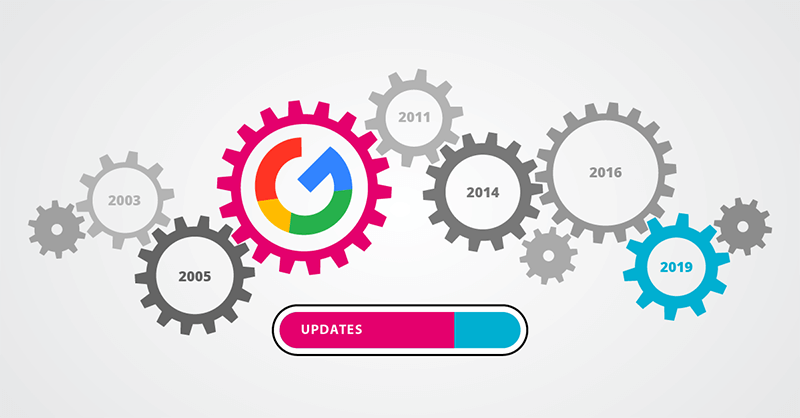Google Algorithm Update for December 2020 Has Been Confirmed
With just a few weeks before 2021, many of us are already looking forward to what the new year might bring. Because we faced many challenges this year, it is not surprising that many people are eager to move on and welcome the coming year.
However, it seemed that the year 2020 has still something in store for many online marketers and business owners. Just recently, Google confirmed that it had released a major search algorithm update, and reports indicated that it is much bigger than the one the search giant rolled out in May.
The Google algorithm update for December 2020 started rolling out on the third day of the month. According to the search giant, it can take up to two weeks for the update to take full effect. Dubbed the December 2020 Core Update, it is the third one of its kind for the calendar year. Similar to all broad core updates Google released in the past, it affects search results in all countries and languages.
Contents
Bigger than the May 2020 Core Update?
One of the most notable characteristics of Google’s latest core update is that it took almost seven months before it was released. Typically, the search giant would announce an update within a three-month time frame, similar to what it did for the May 2020 Core Update.
Another distinct matter about the December 2020 Core Update is the timing of its release. Many online marketers and business owners have expressed concern over this issue. With the holiday season just around the corner, many fear that this update could hurt their business since core updates are known to bring about fluctuating search rankings.
Last but not least is the update’s size. Its May predecessor was already big and broad enough as it is. It took the search giant a couple of weeks to fully roll it out, and the update itself was more volatile than its previous incarnations. However, various reports showed that the December update was even much bigger and more volatile than the one that Google released more than half a year ago.
A study by RankRanger revealed that the latest search algorithm update showed more changes in certain niches than the May update. These changes are particularly prominent in the top three results. Also, fluctuations in the top 20 positions on Google search result pages are twice the number than those in May.
SEMRush, meanwhile, shared that when it comes to desktop searches, the Google algorithm update for December 2020 has the most impact on results in the health, travel, finance, law, real estate, and government sectors. As for mobile searches, health, jobs and education, real estate, pets and animals, law, and government were significantly hit.
Searchmetrics echoed SEMRush’s findings. Their research showed that there had been some noticeable changes in search rankings, particularly in areas or niches related to E-A-T and content, including health, music, news, finance, and eCommerce.
Because of Google’s unexpected Christmas present, the SEO community is buzzing with activity. Some have claimed that they have lost more than 40% of their organic traffic, while others said they experienced 150% traffic growth. However, since the update’s rollout is still incomplete, its overall scope and impact remain to be seen.
What to Do After the Core Update
As with its previous major algorithm updates, Google said there is nothing you need to do if you see a dip in your search ranking following the update. According to the search giant, a decline in search ranking is not a sign that there’s something wrong with your website.
However, if you’re concerned about the sudden decline in your search rankings and you suspect that your site has been hit by the Google algorithm update for December 2020, the search giant has provided a list of questions you should consider. You should evaluate your web content to make sure that it:
- Contains original information, research, or analysis.
- Offers a comprehensive or significant description of the topic you’re discussing.
- Provides an insightful analysis of your chosen topic.
- Is not a copy or rewrite of its source material.
- Is original and provides additional value.
- Is the sort of content you’d want to bookmark or recommend to others.
- Does not contain exaggerated headlines.
Fortunately, you don’t have to wait long to see the results of your efforts after making the necessary adjustments to recover the traffic or search ranking you might have lost. Google assured everyone that the results are immediate. You don’t have to wait until the next core algorithm update to notice improvements in your search rankings.
When it comes to preparing for future core algorithm updates, the search giant’s advice remains the same. If you want to avoid taking a massive hit when Google modifies its search algorithm yet again, you have to offer only the best piece of web content that you can. Also, always ensure that it is of high quality and relevant to your industry/niche and audience’s needs.
Get Ready for Future Google Updates
As the saying goes, “The future belongs to those who prepare for it today.” Since Google is famous for not revealing when it will update its search algorithm, it is wise to make the necessary preparations beforehand. This can help you avoid a massive decline in organic traffic and search ranking while ensuring that your website remains relevant and competitive. Because you certainly don’t want to be caught unaware and unprepared, it’s best that you act today.
At Springhill Marketing, our team of online marketing experts can provide you with award-winning SEO services so you can always be prepared for whatever Google throws your way. We can lend you our expertise to help you make the most of the many opportunities the search giant can offer. If you notice a significant decline in your site’s ranking after the December 2020 Core Update, we can also offer you the solutions you need to help you get back on your feet.
Please speak with us today and we’ll create a bespoke SEO plan for your business.
Drive Your Business Towards The Best Results.
Talk to us about how we can help.














